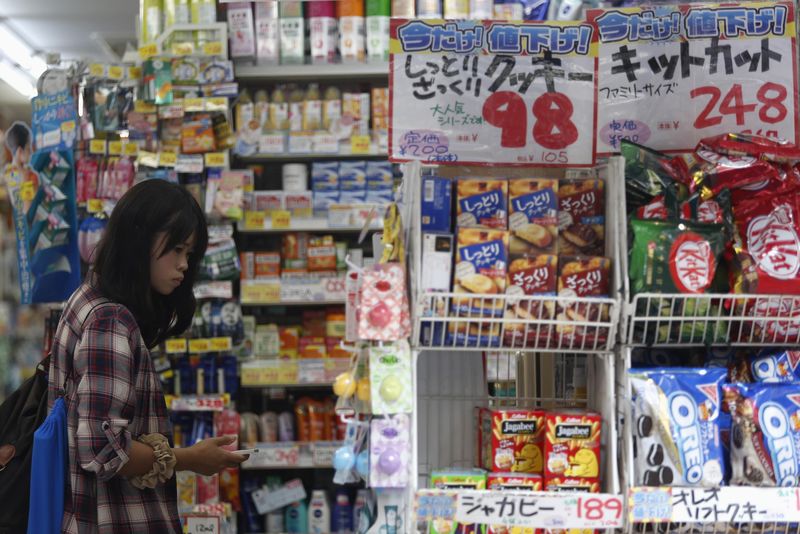By Stanley White
TOKYO (Reuters) - Japanese companies' long-term inflation expectations weakened in September, a Bank of Japan survey showed, highlighting the difficult and drawn-out task the central bank faces in trying to conquer the country's deflationary mindset.
The survey shows how difficult it will be to encourage inflation even after the BOJ overhauled its policy framework in September when more than three years of massive debt purchases had still failed to spark price growth.
"The BOJ has already acknowledged weak inflation expectations, so I don't expect it to ease policy at its next meeting," said Shuji Tonouchi, senior market economist at Mitsubishi UFJ Morgan Stanley (NYSE:MS) Securities.
"I do expect the BOJ to lower its CPI forecasts. The BOJ says downside risks are coming from overseas. So far, these risks have not increased."
Japanese companies expect consumer prices to rise an average 0.6 percent a year from now, lower than their projection three months ago, a central bank survey showed on Tuesday.
Three months ago, companies expected prices to rise 0.7 percent over the next year.
Firms polled by the BOJ, as part of its detailed "tankan" survey for September, also said they expect consumer prices to rise an annual 1.0 percent three years from now and an annual 1.0 percent five years from now.
The BOJ started the survey on corporate price expectations from the March 2014 tankan to gather more information on inflation expectations, which are key to its current stimulus program.
The central bank overhauled its policy framework last month to focus on controlling interest rates amid growing concerns that its aggressive purchases of government debt were becoming unsustainable.
The BOJ will continue to buy government debt to keep monetary policy easy, but its new framework offers more flexibility to reduce purchases if needed.
